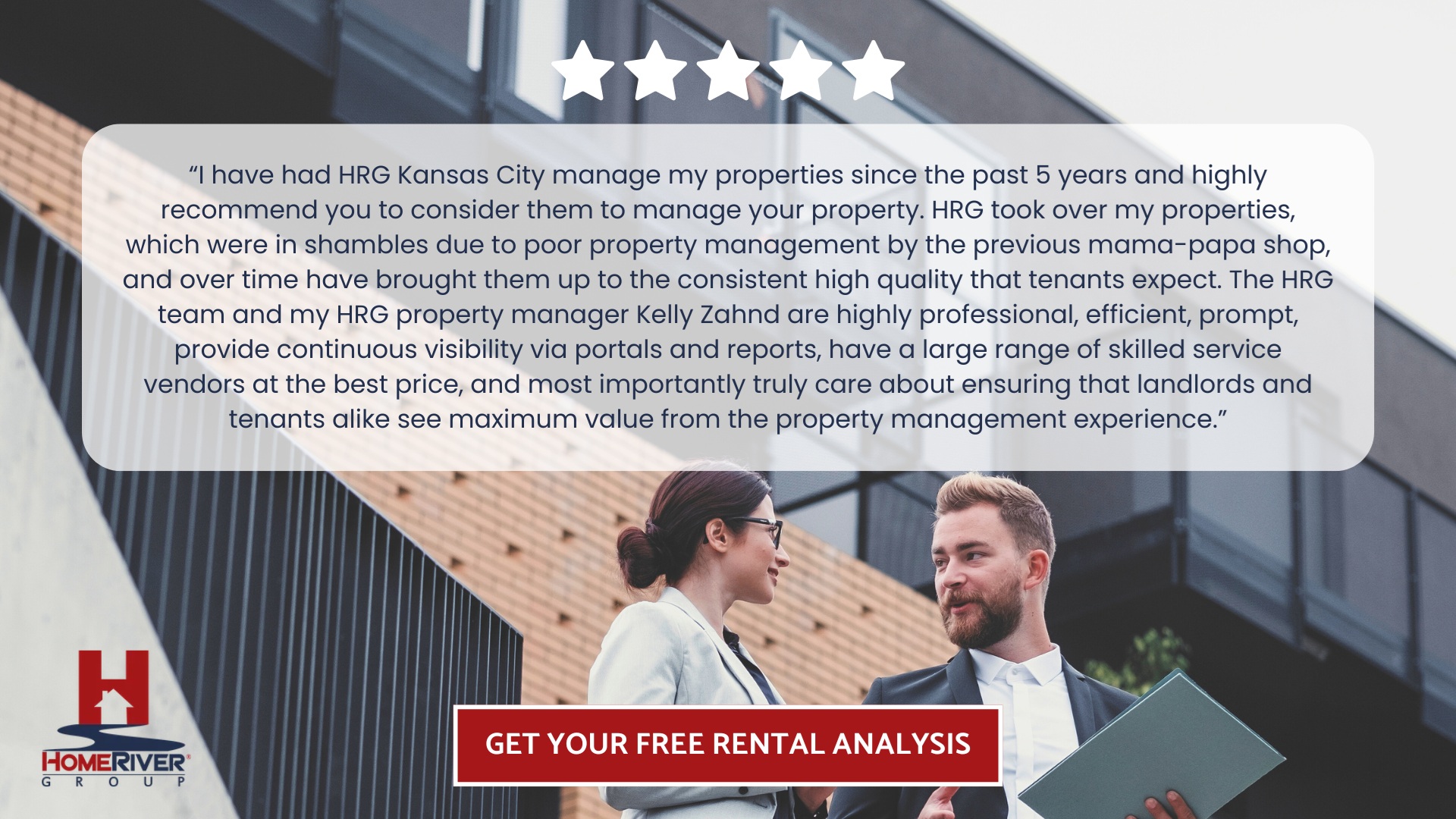
The question of "How much do property managers charge in Texas?" resonates with many navigating the complexities of property ownership or rental. At HomeRiver Group, we provide both exceptional service and local expertise for those considering buying or renting in Texas. Our role is to manage properties and ensure peace of mind for owners, renters, and buyers by offering a comprehensive suite of services tailored to the diverse Texas market. With our national presence and dedicated local market expertise, HomeRiver Group stands as the premier property management company, making your property our priority.
The thriving real estate market in Texas has made property management an essential consideration for property owners, investors, renters, and buyers. Property management fees represent the value you get from professionally managing your property. With the landscape of Texas' real estate continually evolving, these fees can vary significantly based on location, the type of property, and the range of services provided.
This complete guide will explore the specifics of property management charges in Texas, providing clear insights and enabling you to make well-informed decisions regarding your property management needs.
Average Property Management Fee Structures In Texas
Understanding the fee structures is essential for budgeting and financial planning when considering property management services in Texas. Texas property managers utilize various pricing models with specific terms and conditions.
Here's a breakdown of the most common fee structures you will encounter in the Lone Star State:
The fixed monthly fee is a popular structure among Texas property managers. This model involves paying a set amount each month, providing predictability for budgeting purposes. The fee typically ranges between 8% and 12% of the monthly rental income, depending on property location, condition, and the breadth of services provided. This fee covers the basic management tasks, including tenant placement, rent collection, maintenance coordination, and financial reporting.
Like the fixed monthly model, some property managers charge a percentage of the monthly rent instead of a flat fee. The percentage method aligns the property manager's interests with the property owner's; as rent increases, so does the property manager's compensation. The standard rate in Texas for this type of fee ranges from 8% to 10% of the monthly rent.
Aside from ongoing management fees, many property managers in Texas charge a separate fee for tenant placement. This fee covers the costs associated with advertising the property, screening tenants, executing the lease agreement, and performing move-in inspections. Typically, this fee is equivalent to one month's rent, but it can vary between 50% and 100% of one month's rent based on the level of service provided.
Lease renewal fees are charged when a property manager successfully negotiates a lease renewal with existing tenants. This fee compensates the manager for the administrative work involved in renewing the lease, such as updating terms, negotiating rent adjustments, and processing the paperwork. The renewal fee in Texas ranges from $200 to one month's rent, depending on the property management company.
Some property managers add a markup to maintenance and repair work on the property. This markup is usually a percentage of the total cost of the repair or maintenance work, and it's intended to cover the manager's time and resources spent coordinating these activities. The average markup fee in Texas ranges from 10% to 15% of the repair bill.
Flat Fee vs. Percentage-Based Fees: Pros And Cons
Regarding property management fees in Texas, property owners often choose between flat fees and percentage-based pricing structures. Each model has distinct advantages and disadvantages, which can help you make the best decision for your investment.
Flat Fee Structure Pros
Predictability: A flat fee arrangement means you know exactly what you will pay each month, making budgeting simpler and more predictable. This can be especially advantageous for properties with high rental income.
Simplicity: Flat fees are easy to understand, and there is no need to calculate percentages or adjust for changes in rental income.
Cost-Effective For High-Income Properties: A flat fee can often be more cost-effective than a percentage of the rent if your property generates substantial rental income.
Flat Fee Structure Cons
Potentially Higher Costs For Lower-Income Properties: For properties with lower rental incomes, a flat fee might represent a larger proportion of your rental income than a percentage-based fee.
Less Motivation For Property Managers: Since the fee remains the same regardless of the property's rental income, a property manager may be less motivated to maximize the property's earnings.
Percentage-Based Fees Pros
Alignment Of Interests: With percentage-based fees, the property manager's earnings are directly tied to your property's rental income. This can motivate them to maintain high occupancy rates and secure higher rent, increasing both your and their earnings.
Flexibility: This model can be more financially manageable for properties with lower rental income, as the fees adjust proportionately to the property's earnings.
Scalability: As your property's income increases, so does the property manager's fee, which can foster a stronger working relationship and incentivize them to optimize your property's performance continuously.
Percentage-Based Fees Cons
Less Predictability: Your expenses can fluctuate monthly, depending on the property's rental income, making it harder to budget accurately.
Can Become Expensive: For high-earning properties, a percentage-based fee can be more costly than a flat fee, especially in markets with high rental rates.
How Property Management Fees Impact Your ROI
When considering property management in Texas, understanding how management fees affect your return on investment (ROI) is paramount. It's not just about how much property managers charge but also about the value they bring to your property investment in Texas.
Fixed vs. Percentage-Based Fees
Most property management companies, including HomeRiver Group, offer two primary fee structures: fixed and percentage-based. Fixed fees provide predictability in your budgeting, while percentage-based fees align the property management's incentives with your property's performance.
The Value Of Professional Management
Professional property management services, such as those offered by HomeRiver Group, often lead to higher tenant satisfaction and retention, reducing turnover costs and vacancy rates. This enhanced tenant experience directly influences your property's profitability and, subsequently, your ROI. Higher occupancy rates and streamlined operations ensure a steady income stream, making the investment in professional management worthwhile.
Cost vs. Benefit Analysis
When calculating the impact on ROI, consider the tangible and intangible benefits of engaging a property management company. These include but are not limited to:
Time Savings: The time you save by not having to deal with the day-to-day management of your property can be significant. This freed-up time can be allocated to other profit-generating activities.
Expertise and Local Market Knowledge: Companies like HomeRiver Group, armed with their local expertise and backed by a national platform, can often command higher rents and reduce time on the market. Their understanding of the Texas market dynamics and legal landscape can lead to more effective marketing, tenant screening, and lease negotiations.
Risk Mitigation: Professional management reduces the likelihood of costly legal issues and compliance missteps. Property management companies help protect your investment and peace of mind by following local and federal regulations for landlords.
Maintenance and Repair Management: Access to professional, cost-effective maintenance and repair services can preserve and even enhance your property's value, contributing positively to your ROI.
The Bottom Line
While the fees charged by property managers in Texas are important, the impact on ROI should be assessed regarding both direct financial outcomes and the broader value provided. Effective property management can enhance property value, optimize occupancy rates, and improve tenant satisfaction—each contributing to a more favorable ROI.
Tips For Choosing The Right Property Manager For Your Budget
Finding the right property manager within your budget in Texas can be manageable. You can secure exceptional service without compromising quality by researching your specific needs.
Here are key tips to guide you through the selection process:
Understand The Fee Structure
Property managers might have varying fee structures, including fixed monthly rates or a percentage of the monthly rental income. Understanding these differences and comparing how they align with your financial plans is crucial. Don’t hesitate to ask for a detailed breakdown of all potential fees to avoid surprises.
Evaluate Their Services
Examine what services are included in the management fee. Some managers might offer a comprehensive package covering everything from tenant screening to maintenance and financial reporting. HomeRiver Group, for instance, offers a wide range of property management services under one roof, giving owners great value for their investment.
Check For Local Expertise
Your property manager should thoroughly understand the Texas real estate market, including local regulations and market trends. Local expertise ensures that your property is managed according to the latest standards and practices, maximizing your returns while minimizing legal risks.
Assess Communication And Reporting Abilities
Effective communication and transparency are key to a successful partnership. Consider a property management company that values open communication lines and provides regular, detailed reports on your property’s performance. HomeRiver Group’s centralized operations and reporting capabilities ensure that owners are always informed and in control.
Read Reviews And Testimonials
Gain insights from other property owners’ experiences. Reviews and testimonials can show a company’s reliability, customer service quality, and overall performance. A property management company with positive feedback and a track record of satisfied clients will likely offer you the exceptional service you deserve.
Look For Scalability
If you plan to expand your investment portfolio, ensuring the property manager can scale with your growing needs is crucial. A company with a strong multi-state presence and a wide array of services, like HomeRiver Group, can seamlessly adapt to your evolving requirements.
Cost-Benefit Analysis Of Hiring A Property Manager
When considering how much property managers charge in Texas, it's crucial to conduct a cost-benefit analysis to understand the value they bring to the table. Property management is an investment in your property’s health and your peace of mind as a property owner.
Financial Benefits
Firstly, property managers typically charge a percentage of the monthly rent, which ranges between 8% to 12% in Texas. While this may seem like a notable expense, the financial benefits often outweigh the costs. Property managers are skilled in setting competitive rental prices, which can increase your revenue over time. They also have systems and processes to minimize vacancies, effectively saving money that would be lost on an empty property.
Time Savings
The time savings property managers offer cannot be overstated. Managing a property involves countless tasks, including marketing, tenant screening, lease negotiations, maintenance coordination, and legal compliance. Owners can free up a significant amount of time by entrusting these tasks to a professional property manager. This time can then be invested in other pursuits, be it personal or additional business ventures.
Maintenance And Tenant Retention
A key component of property management is timely, cost-effective maintenance. Proper maintenance saves money in the long run by preventing major repairs and contributes to tenant satisfaction and retention. Happy tenants are more likely to renew their leases, resulting in reduced turnover costs and steadier rental income.
Legal And Regulatory Compliance
Navigating the complex landscape of property law and housing regulations is another area where property managers provide invaluable benefits. Their expertise in Texas property law can protect owners from potential lawsuits and legal challenges, which can be costly and damage a property’s reputation.
Final Thoughts
The cost of property management services in Texas can vary widely based on location, property type, and the range of services provided. Renters and buyers looking for exceptional service combined with local expertise will find value in partnering with a property management company that understands the nuances of the Texas market.
HomeRiver Group is a leading national property management company offering a unique blend of dedicated local market expertise and centralized operations. At HomeRiver Group, we aim to simplify how much property managers charge in Texas by offering transparent, competitive pricing tailored to each property owner's unique needs. Choosing HomeRiver Group means entrusting your property to a company that values your investment as much as you do.
Read also:
Frequently Asked Questions About How Much Do Property Managers Charge In Texas
Are property management fees in Texas negotiable?
Yes, they can be. Many companies are open to adjusting rates, especially for multiple or low-maintenance properties. It’s worth asking if they’ll consider flexibility.
What is the average percentage fee for property management in Texas?
The average fee typically ranges from 8% to 12% of monthly rent, depending on location, property type, and services offered.
What factors influence property management fees in Texas?
Property size, type, location, service range, condition, and rental market are factors. More complex or demanding properties generally have higher fees.
Do property managers in Texas charge a flat fee or a percentage of rent?
Most charge a percentage of rent, though some may offer flat fees for certain services. Choosing between them depends on your property and service needs.
Is there a standard leasing fee for property managers in Texas?
Yes, many charge 50% to 100% of one month’s rent to cover tenant placement costs, such as marketing, tenant screening, and lease execution.
Can property management fees in Texas vary by property type?
Yes, fees vary by property type. Commercial properties often require more complex management than single-family homes, which may result in higher fees.










